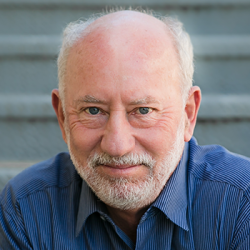
Some of the pushback on PBL comes from students who are doing well in school—and their parents. “I know how to play this game,” they say. “Listen to the teacher, take notes, read the assignments, do my homework, memorize for the test, get A’s. Why make the change to PBL?” You hear this especially from high school students with their eye on college, but younger high-achieving students might react the same way.
I’ve even heard that some schools in affluent areas do not see PBL as being appropriate for students who are on the “honors track” – starting in middle school. For them, it’s all about fast-paced traditional instruction, “covering content” and piling up Advanced Placement courses (which btw are showing signs of changing in a PBL direction). Leave PBL for the “regular” students, they say. (In less affluent areas, of course, the opposite is often the case; students who are still thought to need to learn only “the basics” are denied PBL in favor of drill-and-kill approaches. See my recent post on “The Pedagogy of Poverty.”)
Here are answers to four frequently asked questions about Project Based Learning from high-achieving students or their parents:
1. How is Project Based Learning different from what I’m used to?
In a PBL project, you’re not told what to do every step of the way by a teacher. You’ll make some of your own decisions about what topics to learn about, what resources and tech tools you’ll use, and how you will create something and share it with other people.
There might still be lectures, textbooks, quizzes, tests, and other familiar teaching methods and assignments, but they’re all used in the context of completing the project. PBL also takes you deeper into a subject and may even have an emotional impact, so what you learn stays with you longer, unlike the traditional memorize-and-forget approach.
2. What will I get from PBL that I’m not already getting from school?
First, you’ll be doing more meaningful work. In a traditional school, sometimes you might have a teacher who’s inspiring and gives you assignments that matter to you, but is most schoolwork like that? Do you do the work mainly for a grade, or because you really care about it? In PBL, you’ll be engaged by projects that have personal relevance or a real-world connection, and sometimes even make an impact on your community or the world.
Second, you’ll gain skills that will help you succeed in school, in your career, and in life. Employers say they want to hire people who can solve problems creatively, manage their time well, work in teams, and communicate with a variety of people. These kinds of skills are not taught consistently in traditional education, but they are in PBL.
Third, projects might even stretch you, by presenting you with real-world challenges with no simple answers, and by exposing you to the work of professional adults and experts outside of school. Students who experience a lot of PBL in their time in school gain a sense of responsibility and confidence in themselves, so they are ready to tackle problems they will face in the future.
And finally, projects can give you the chance to use (or develop) special talents, whether it’s in the arts, technology, working with your hands, public speaking, event planning, etc.
3. When students work in teams in PBL, will I have to do more of the work for my group, and how does grading work?
Not all work in PBL is done in teams; projects can include individual assignments and assessments. But since knowing how to work in a team is a valuable skill, PBL teachers usually build collaboration into projects. Students may need to be taught how to work well together—you can’t be expected to know how if you’re new to PBL. PBL teachers create a classroom culture that supports effective teamwork. They manage the process to help ensure that all team members do their fair share of the work—and intervene if necessary. Grades in a project should be based mainly on individual work, not group assignments, and PBL teachers keep a close eye on who’s doing the work in a group.
4. Will PBL prepare me for college?
In a PBL classroom, students can still be taught how to listen to a speaker and take notes, which is a basic skill in traditional lecture-based colleges. But many colleges today are moving beyond that approach, and asking students to do team assignments, independent research, and make presentations—which PBL prepares you for. Many students have difficulty in college if they haven’t learned to problem-solve, manage long-term assignments, and take responsibility for their own learning—which, again, PBL teaches you how to do. (Check out this blog post by a graduate of Columbia University about how her PBL school prepared her well for college.)
As a side note, PBL also has the potential to help with college admissions; if you’ve done a great project that made an impact on you, others, or the world, you can put it on your resume and write about it on applications.

